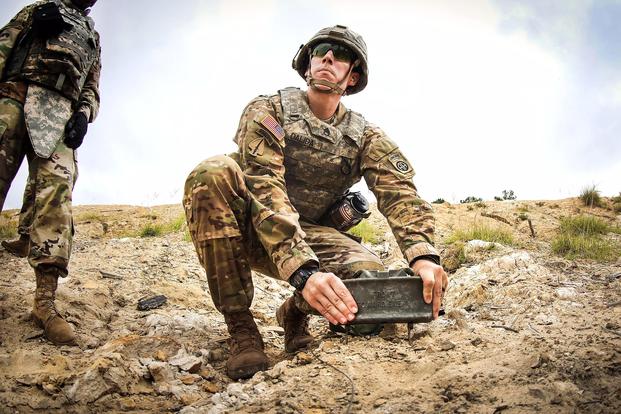The special operations soldier killed Thursday in a training exercise at Fort Bragg, North Carolina, involving demolitions was attending the Special Forces Qualification Course.
Staff Sgt. Alexander P. Dalida was killed and seven others were injured in the incident.
Dalida, 32, of Dunstable, Massachusetts, was a student in the Special Forces Engineer Course, which is the military occupational specialty phase of the Special Forces Qualification Course, according to an Army Special Operations Command press release.
He was assigned to 1st Special Warfare Training Group (Airborne), U.S. Army John F. Kennedy Special Warfare Center and School.
The cause of death is under investigation.
"Our primary focus right now is to care for his loved ones," said Col. Michael Kornburger, commander of 1st Special Warfare Training Group (Airborne). "We will honor Staff Sgt. Dalida and help his family in their time of need."
The injured soldiers were taken to the base's Womack Army Medical Center for treatment, said Lt. Col. Rob Bockholt, a spokesman for the Army SoCom, which is based at Fort Bragg.
Bockholt said he could not describe the extent of the injuries or what caused them.
"There was an incident that occurred on one of the ranges," he said, adding that the command is investigating. "We're looking into exactly what happened."
Dalida enlisted in the Army in September 2006, and attended basic training at Fort Jackson, South Carolina. Following Advanced Individual Training at Fort Eustis, Virginia, he served the remainder of his time assigned to aviation units, prior to attending Special Forces Assessment and Selection.
His military education included Combatives Level 1, Enlisted Combat Skills, MH-60 Maintainer, MH-60 Nonrated Crew Member, Basic Leader Course, Air Movement Operations, SOC Equipment Preparation, Airborne training, Advanced Leaders Course, Air Assault and SERE School.
Dalida's awards and decorations include the Air Medal, Army Commendation Medal with one oak-leaf cluster, Army Achievement Medal with oak-leaf cluster, Army Good Conduct medal (third award), the Combat Action Badge, Aviation Badge, Parachutist's Badge and Air Assault Badge.
The special operations community is a close-knit family, said Maj. Gen. Kurt Sonntag, commander of the Special Warfare Center and School.
"We consider every student who enters our institution a part of our SWCS family," Sonntag said. "Staff Sgt. Dalida's death is a reminder that a soldier's job is inherently dangerous. Our thoughts and prayers are with Staff Sgt. Dalida's family and friends."
The incident at Bragg is the latest training accident to result in injured military personnel.
Five Marines are in critical condition and 10 more are receiving medical care for burns after an amphibious assault vehicle erupted into fire during training at Camp Pendleton, California, on Wednesday morning.
Officials with 1st Marine Division said Wednesday evening that eight of the 15 Marines aboard the vehicle were medically evacuated to the Burn Center at University of California San Diego Health, with three Marines there in critical condition, and five Marines in serious condition.
Another four Marines were taken to University of California Irvine's Medical Center, where two remain in critical condition and the other two are receiving treatment, their condition unknown, officials said.
One Marine is in stable condition and being treated at Scripps Memorial Hospital La Jolla, and two more are being treated on base at Naval Hospital Camp Pendleton with minor injuries.
The cause of Wednesday's AAV fire is not yet clear. Marine officials are investigating the circumstances surrounding the incident.
Fort Bragg is home to about 57,000 military personnel. It is the largest Army installation by population and covers about 161,000 acres.
Special Operations Command has about 23,000 soldiers spread over several sites.
-- Staff writer Hope Hodge Seck and The Associated Press contributed to this report.
-- Matthew Cox can be reached at matthew.cox@military.com.





























